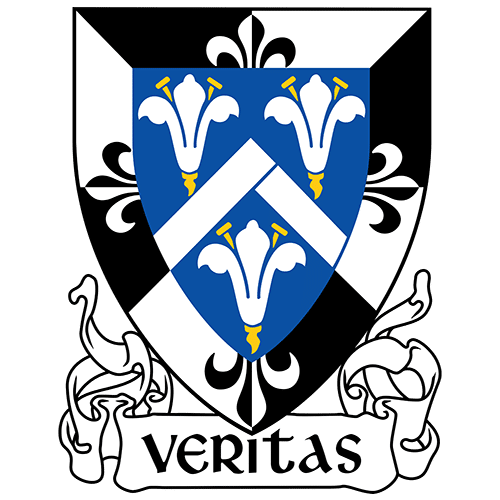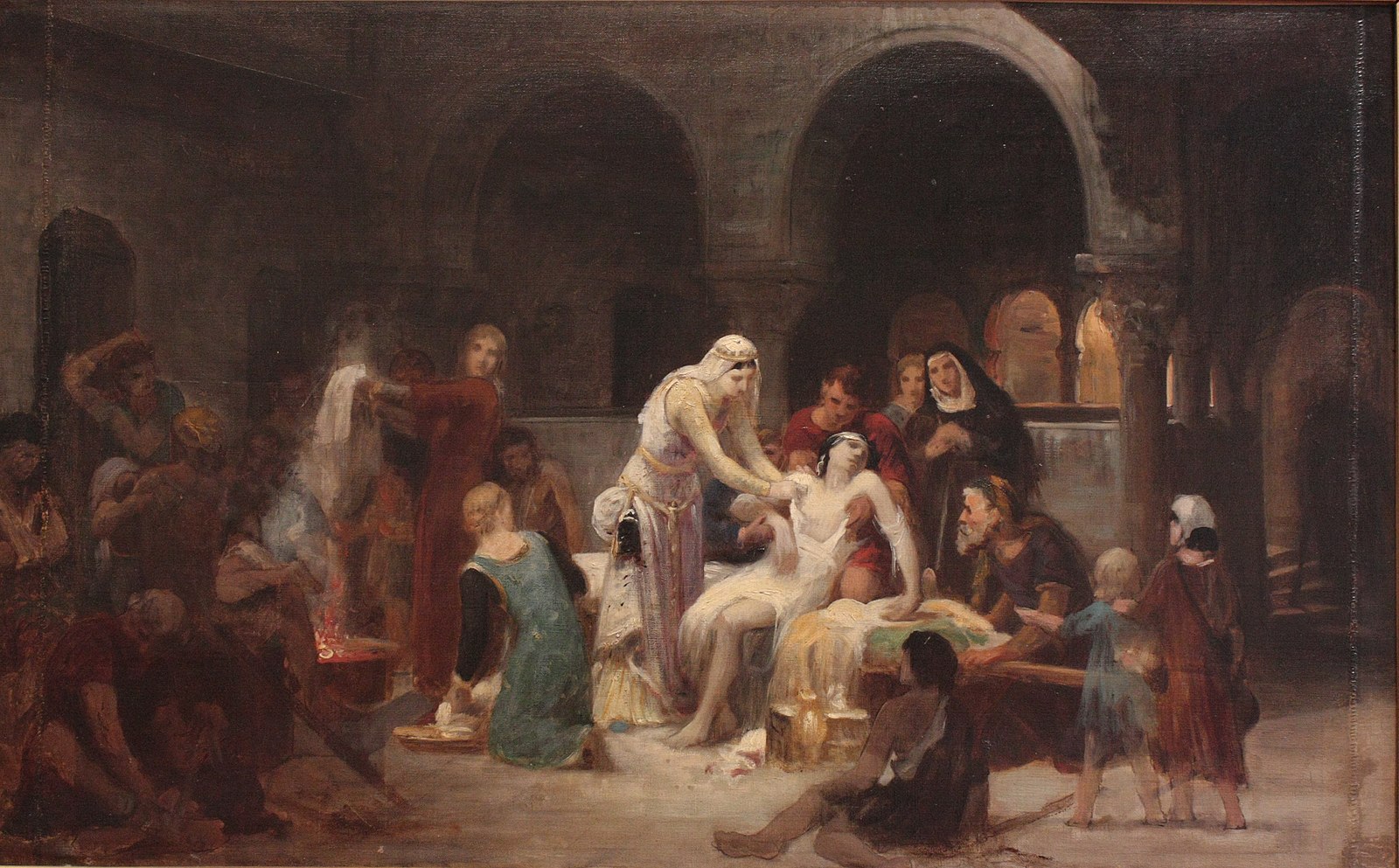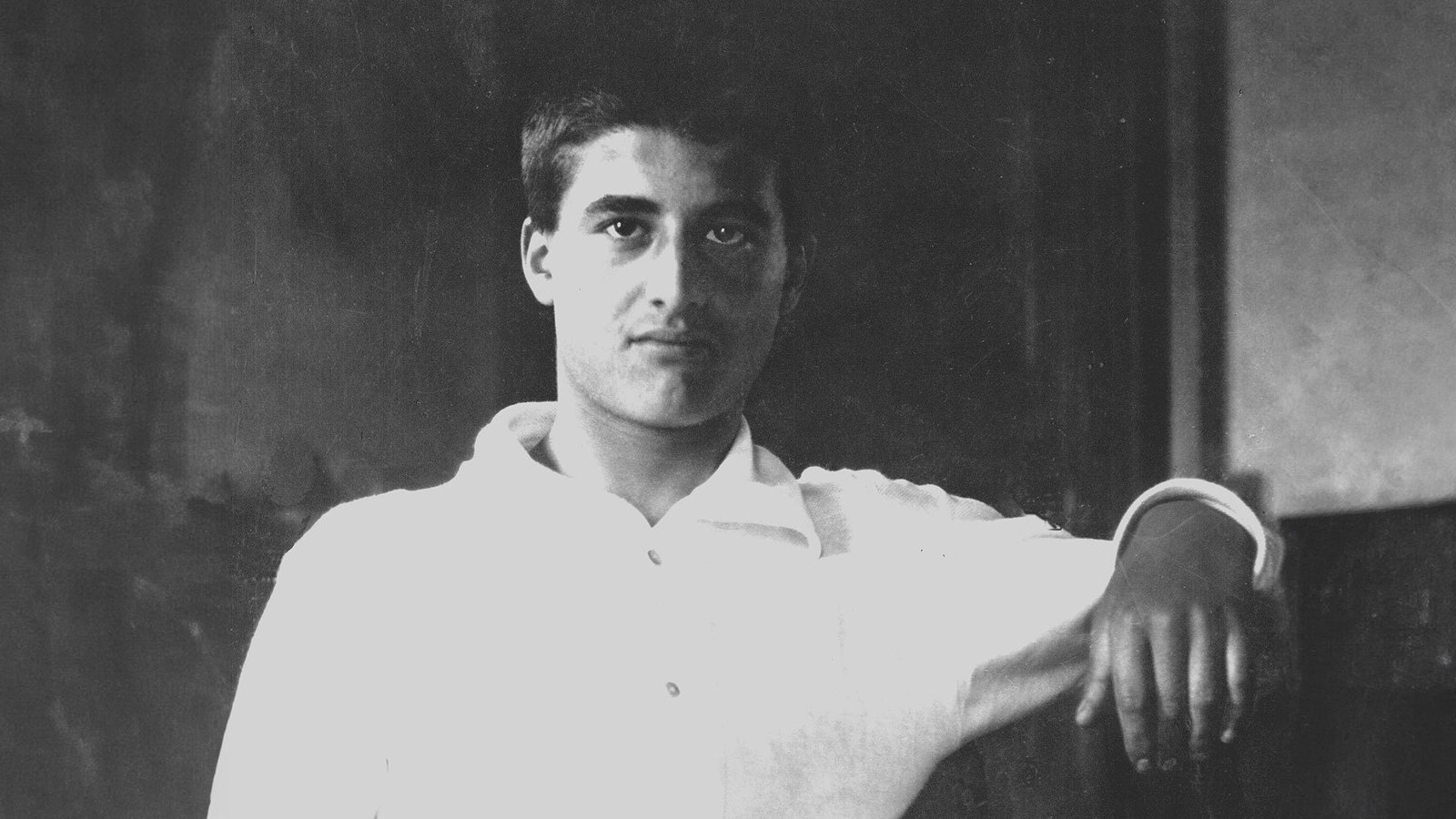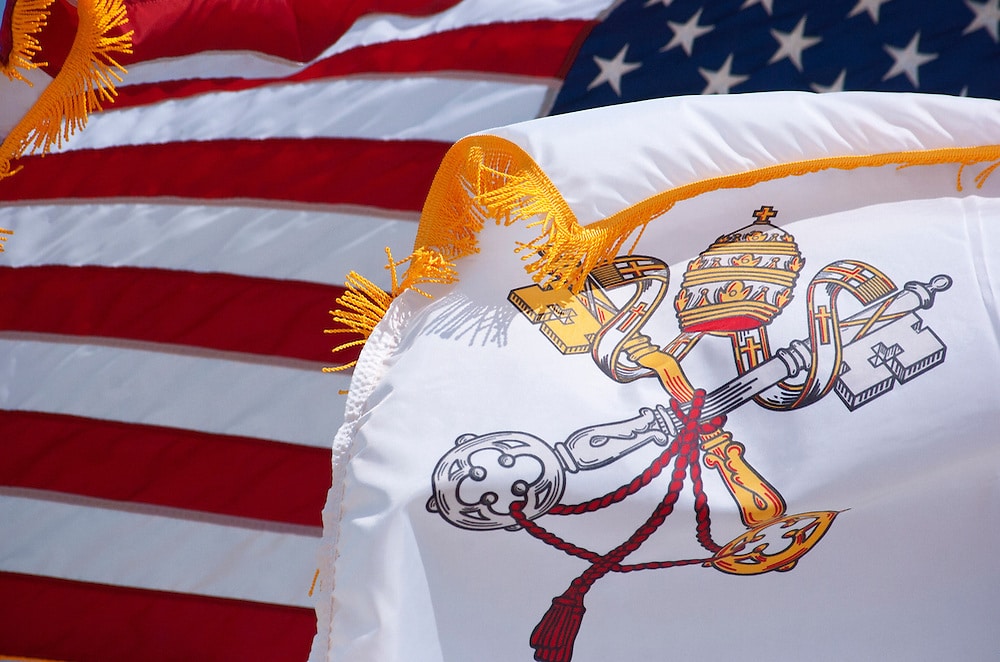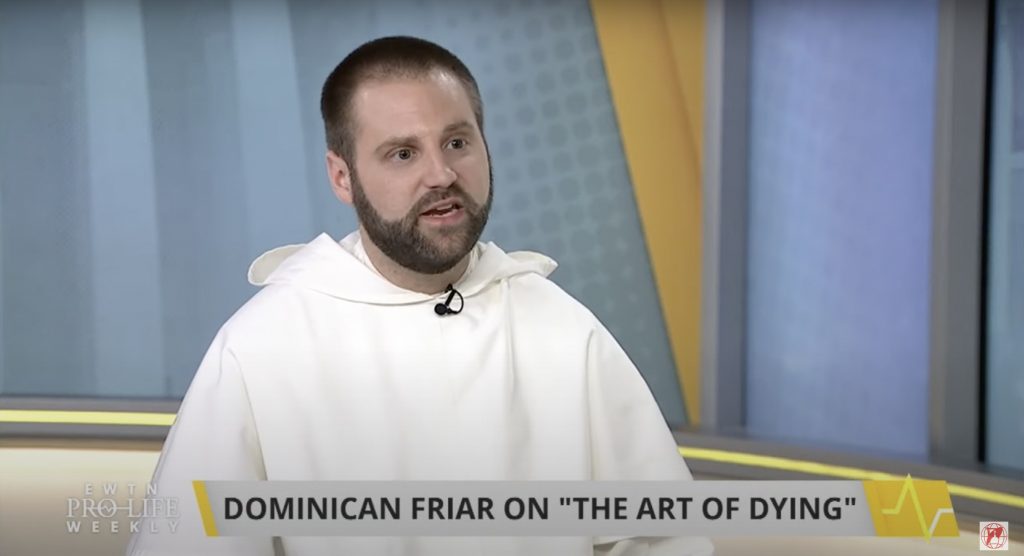
Br. Columba Thomas, O.P., speaks about The Art of Dying on EWTN’s Pro-Life Weekly.
The Art of Dying: An Interview with Br. Columba Thomas, O.P.
By BlackFriars Staff
Br. Columba Thomas, O.P., first encountered the Dominicans in medical school and completed his medical training before joining the Order in 2016. His translation of the 15th century Ars Moriendi (The Art of Dying) was published by the National Catholic Bioethics Center.
What are the problems with how we approach death today?
The biggest challenge we face is the overmedicalization of dying. Health care has become so complex, with so many options available, that dying persons and their loved ones often must make many difficult and painful decisions, and they can become so focused on health care interventions that it distracts them from the deeper spiritual dimension.
How can The Art of Dying help?
The Art of Dying serves as a compass to ensure that people do not lose sight of their ultimate destination. It focuses on the life of the soul in a way that is concise, practical, and sums up the Church’s tradition. In addition to discussing five common temptations that dying people face, The Art of Dying also emphasizes the need to reflect on the truths of the faith summarized in the Creed, the need to pray regularly and unite our sufferings with Christ, and the importance of the sacraments.
How can the Church respond to the practice of physician-assisted suicide?
If you look at recent trends in attitudes regarding the legalization of physician- assisted suicide in the United States, the level of support expressed by people of faith is alarming. A Gallup poll in 2018 showed that 41% of Americans who attend church weekly support legalizing physician-assisted suicide. I suspect this support is rooted in a false sense of compassion that supports a person’s autonomy over more fundamental moral concerns.
In response, The Art of Dying provides Christians with a helpful vantage for overcoming a growing societal acceptance of physician-assisted suicide. Some themes that especially speak to this include the great dignity of uniting one’s sufferings with Christ, the priority of the soul over the body, and the role of community in advocating for the soul’s eternal health. A person’s death is not an isolated event, but an opportunity to promote a culture of respect for life and to build up the kingdom of God on Earth.
How will your Dominican formation equip you to approach the dying and their loved ones as a priest?
My formation as a Dominican has provided me with a firm grasp of the theological and pastoral principles involved in ministering to the dying and their loved ones. In our order, we place a great deal of emphasis on the realities of sin and grace, as well as the importance of the sacraments for restoring souls to the life of grace and strengthening them in their preparation for death. We also have a deep love for the liturgical traditions of the Church, and for a life of prayer and meditation, which we can share with dying persons and their loved ones to help them cultivate a deeper relationship with the Lord.
Is there a particularly Dominican way of thinking about death?
We certainly don’t shy away when it comes to the subject of death. I say this because we have a strong tradition of both praying for the dead and writing works about how to prepare for death. Anyone observing our life in community will realize that we pray frequently for our deceased brethren and benefactors, both at Mass and in other community prayers. There is also a long list of Dominicans who wrote treatises, chapters, or homilies about how to die well, including Blessed Henry Suso, Dirk van Delft, Johannes Nider, and Girolamo Savonarola. To top it off, although the author of The Art of Dying is anonymous, many scholars—myself included—believe it was a Dominican who wrote it. I provide some details to support this theory in my introduction to the annotated translation of The Art of Dying, and I continue to research this topic with great interest.
Is there anything else you would like to add?
I would like to point out also that The Art of Dying is not just for those who are dying or know someone who is dying. There is a sense in which this is just as much an art of living. The text itself points this out, indicating that everyone would greatly benefit from using this work to help reflect on the reality of his or her eventual death. Christianity is all about how Christ overcame death so that may enjoy union with him in eternal life. What better way to keep this in focus than to have hope and confidence that we too will overcome death and be brought to new life in Christ?
